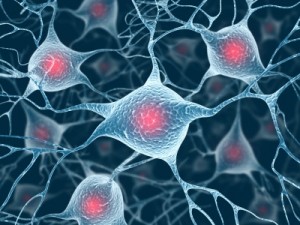 Glutathione is a powerful antioxidant that is made within the human body; in fact, it is the most important antioxidant produced by the cells and helps to neutralize a whole host of free radicals. Glutathione is also important for such things as DNA synthesis and repair, hormone production, amino acid transport and enzyme activation. If all that sounds like a bunch of ‘blah-blah-blah’ the take away here is that every system in the body is affected by the state of the glutathione system, especially the immune system, the nervous system (including neurotransmission), the gastrointestinal system and the lungs.
Glutathione is a powerful antioxidant that is made within the human body; in fact, it is the most important antioxidant produced by the cells and helps to neutralize a whole host of free radicals. Glutathione is also important for such things as DNA synthesis and repair, hormone production, amino acid transport and enzyme activation. If all that sounds like a bunch of ‘blah-blah-blah’ the take away here is that every system in the body is affected by the state of the glutathione system, especially the immune system, the nervous system (including neurotransmission), the gastrointestinal system and the lungs.
Under normal circumstances, glutathione is made from the amino acids L-cysteine, L-glutamic acid and glycine obtained from the diet; L-cysteine is thought to be the rate limiting step in this process (i.e., L-cysteine is what determines the speed of glutathione production). However, in chronic disease states a relative nutritional deficiency is created whereby enough glutathione precursors cannot be obtained from the diet to meet the glutathione needs of the body. When this happens, the body’s glutathione stores become depleted and the body begins to break down. If this occurs over a long enough period of time, a complete glutathione collapse can occur (as in Parkinson’s disease).
Glutathione does not cross the blood-brain-barrier, but L-cysteine does. Therefore, in order to restore glutathione levels, a person must take insufficient quantities of the necessary precursor amino acids. S-adenosyl-methionine (SAMe) can also be used as a glutathione precursor, as can methionine or N-acetyl cysteine (NAC); however, all of these compounds are quite a bit more expensive than L-cysteine for an equivalent amount (based on molecular equivalency).
Glutathione is necessary to protect the neurons from free- radical damage and destruction (destruction of neurons is called neurotoxicity). Without sufficient glutathione in the system, all manner of free-radicals can cause neurotransmitter imbalance. Nowhere is this more evident than with Parkinson’s disease.
The leading cause of Parkinson’s disease is the lipophilic (fat-soluble) neurotoxins which cross the blood-brain-barrier that cause irreversible damage to the post-synaptic dopamine neurons in a portion of the brain called the substantia nigra. The body’s primary protection against these neurotoxins is glutathione. In Parkinson’s disease (as with most neurotransmitter-based disorders), total glutathione levels are depleted long before symptom are detected. The only way to halt the progression of Parkinson’s disease is to (1) restore optimal glutathione status to prevent further degradation of dopaminergic neurons and (2) restore optimal neurotransmitter levels to restore optimal physical and mental functioning.
Every day that a person with Parkinson’s disease has depleted glutathione is another day where irreversible brain damage can occur that can make the condition worse. This is also true of other neurotransmitter-based imbalances, although usually to a lesser degree. Therefore, increasing glutathione stores is of paramount importance with optimizing neurotransmitter function.


Can I use yr Neurocomplete for my PD w/o any blood/urine testing?
Hi Vincent – thanks for your question.
In order to use amino acid therapy with PD, it is imperative that you work with a provider with experience. To get started, I would suggest you first contact NeuroSupport to see if there is a provider in your area: http://www.neurosupport.com; if not, please contact us and set up an initial phone/skype consultation and we’ll be happy to work with you.
Sincerely,
Dr. Chad